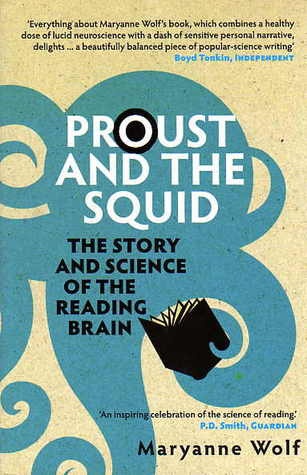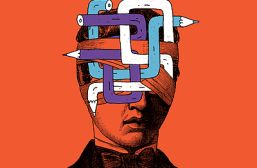From Noun to Verb: The Consequences of our New Idea of “Text”

With the limitless opportunities for intellectual exploration and convenient communication the Internet offers man, one might expect an age even greater than that which Gutenberg’s printing press brought about in Renaissance Europe to burst forth upon the modern world’s stage. Fostered by the positive rays the Internet’s democratization of knowledge seems to promise, why would we not headed towards a more intellectually and aesthetically rich age in our trek through time? And yet humanity has not entered an age intellectually, aesthetically, or creatively as dynamic as any of the revolutionary eras spurred on by Gutenberg’s press in human civilizations of the past. In fact, as writer Nicholas Carr indicates in his book The Shallows, human culture is actually regressing; we are delving deeper into the ethically suspect hunter-gatherer forests of the Web’s woods instead of the vast interior realm of human being’s full potentiality which the static text helped to cultivate (Carr 138). One reason for this regression lies in the fact that our understanding of what constitutes a “text” has dramatically changed from Gutenberg to the Internet. We have transformed what used to be understood as static, internal, and physical in to a verb that is superficial, electronic, and circuitous. The Internet’s “text” seduces us with the promise of deep feeling, but that is only a consequence of our experience of convenience and efficiency. In actuality, the very structure of the Internet and the “text” as a verb, which the Internet fosters, tends us towards a regression in our lived experience, bringing us away from the highly developed capacities for deep meditation that were necessary skills cultivated in writing and reading a static text.

Our very understanding of what the word “text” signifies has changed dramatically with the modern Internet era. Indeed, no less an authority than the Online Etymological Dictionary shows this change, for when one searches “text” the first result will be the 2005 entry: “to send a text message by mobile system, 2005” (OED). The sense of the word “text” in its static “noun” form, which was conceived around 14thc., is increasingly being lost with the new conceptualization of communication via the Internet (OED). This brings about deeply troubling intellectual and aesthetic changes in how we view the world. Our main mode of communication is mediated through the screen rather than the page, letter, or even voice. With such a shift necessarily comes a change in our expectation of the human and human communication, one that replaces tactile physical presence for the separation of the screen.
The description of “text” given in its noun form is deeply related to the actual texture on which the written symbols were put (OED). The Latin “textus” means “style or texture of a work,” literally “thing woven” (OED). This sensitivity to the actual texture of language as a static, yet, paradoxically, endlessly interpretable innovation with the Gutenberg printing press is being lost in the ephemeral and always active verb of texting on the Internet.

The intellectual value of having the ability to read a static text, however, is never taken for granted in scholar Maryanne Wolf’s extensive studies. Throughout her work, Proust and the Squid, Wolf reminds her reader just how “miraculous” the act of “learning to read” is and how our acquisition of this skill literally changes “brain’s…circuitry” (Wolf 114). The intense training the human brain needs to go through simply to acquire the ability to read is something we need to work towards. The act of deep reading is an active and time-consuming process. As Nicholas Carr notes in his text The Shallows, deep reading with a Gutenberg printed text is a “symbiotic” act of “intellectual and artistic cross-fertilization” (Carr 74). The act of writing and reading, with the increased syntactical innovations of the printed text, was meant to enhance the expression of “ideas and emotions with superior clarity, elegance, and originality” (Carr 75). The static text promoted innovations which have served to further develop our written expression. The idea of the struggle to read and to attach one’s self to another’s deeply thought out printed text is something that is lost with the instant gratification of the constantly shifting Internet of texting.
We are not suggesting here that it is better for humans to be living their lives like monks sequestered in an endless dialogue with books. Since we know the act of reading is un-natural to our species and that it requires a great amount of effort, the need to walk away from the static text once we run into a problem that is too great for our comprehension is essential to our psychological well-being. Some part of the unconscious mind need time to sort things out in a relaxed environment. But, without any struggle at all there can be no hope for the great accomplishments we know humanity is capable of achieving through the written word. We have traded discipline required in the Gutenberg era for the convenience the Internet texting offers, and with this necessarily comes a loss. The convenience of texting makes us more lazy and sloppy in our expression by allowing the machine correct our expression for us. This convenience dulls any sense of discipline from our own minds which alone could rewards humanity with the grand artistic masterpieces and scientific innovations of the past.
The need to re-charge our human potentiality must come from within, not from computer screen. If we are the ones re-charging then we are cultivating our own intellectual well-being naturally, and, by extension, cultivating our shared human culture for the better. If we rely on the computers so much that they become the ones needing to re-charge for our own well-being then we must confront the question Wolf raises in her text: “[w]hat happens to…children when the electricity goes out…?” (Wolf 75). If our communication is mediated by the text of the screen rather than the page, then what is the difference between man and his machine? Once the convenience to Google disappears from the human race, we become aware just how much our mind has retained, or has lacked retaining. We come face to face with the real reason we are obsessed with the image of the zombie in modern popular culture, for the zombie is us, and the computer is, to a large extent, where we have exported our minds.

This is one reason why writer Carl Shirky is mistaken in saying “[n]ow that the Net has granted us abundant ‘access’… we can at last lay those tired habits [of reading books such as War and Peace] behind” (Carr 112). Shirky’s use of the word “habit” in describing reading such a mammoth static text as War and Peace is intellectually misguided. Shirky seems to be suggesting that having such a “habit” for reading is a negative thing and that one can gain more intellectual enrichment from the abundant information and opportunity of the Web.
But this “habit” for reading challenging texts is something we should not discourage in our youth, rather it must be fostered from the very moment a child is born, as Wolf notes empirically in her studies of childhood reading development (Wolf 82). Wolf notes that “[c]hildren with a rich repertoire of words and their associations will experience any text… in ways that are substantively different from children who do not have the same stored words” (Wolf 9).

Nicholas Carr documents this troubling trend within the anti-intellectual wing of academia today from scholars like Shirky who see the “screen rather than the page” as having “always been the conduit of information” (Carr 113). Having such a powerful source of information in the palm of our hands, as the screen presents itself to be, makes all the more apparent the de-valuation of Gutenberg era skills such as memorization and close reading that Shirky and other academics have suggested (Shirky 100). But with such a limitless fount of information, there also comes infinite distraction and perpetual cultural amnesia. Why remember on my own when our man-made Google-god remembers for us?
Carr notes that those who read static texts have great activity in the brain’s “regions associated with language, memory, and visual processing” yet they do not activate regions associated with “decision making and problem solving” (Carr 121-122). The conversation between a static text and its reader has been a mystical and liberating experience for generations in the past; but reading “texts” from Shakespeare, Dante, or Keats are deemed much less worthy of our new-found “texting” time than the texts from our friends and from ourselves by the anti-intellectual wing of academia today. If we are to follow their advice, the texts of Shakespeare are just unnecessary space in our mind, not the very discipline needed to unlock the human mind’s greatest potentiality.
The reason for the anti-intellectuals’ reaction against the static text might come from the findings that reading texts on the Internet fosters quicker reading and activates both problem-solving and decision-making regions of the brain (Carr 122). Yet, interestingly, because the book disengages the senses associated with ethical evaluation and practical problem solving (such as one might have to do by pushing the right buttons or downloading the right software) the conversation between a static text and the reader could be said to be more of an actual authentic conversation than the mechanical chat through the filter of the inhuman screen.

This de-valuation of traditional static text learning practices such as memorization also has to do with the understanding the current generation has on “knowing.” Wolf raises this concern when she watches her “two sons use the Internet to finish a homework assignment, and then tell [her] they ‘know all about it’” (Wolf 77). The new generation’s understanding of “knowing,” as seen in this passage, is attached to a reliance on the pool of ethically suspect and, perhaps, logically unsound Internet knowledge. Our brains, in this sense, are our machines, and our sense of knowing and remembering is facilitated by how we store our memory cards.
Certainly, now we can communicate non-stop without having to worry about remembering history, math, or literature because we have all of this knowledge right at our fingertips. This could be seen as liberating, as Shirky certainly sees it, by allowing us to do what we want to do, which he envisions as following our desires in the pathos-ridden Facebook (Shirky 101).But with this reliance on the Internet’s accessibility comes an actual regression in our species’ development. Our very brain is literally changing, and as Nicholas Carr notes: “[a]s the time we spend scanning Web pages crowds out the time we spend reading books…the circuits that support those old intellectual functions and pursuits weaken and begin to break apart” (Carr 120). There is a very obvious threat to how we and our future generations are physically wired to perceive the world around us, which is to say not to perceive it at all save through the filter of the screen. The question we must ask ourselves is: do we believe re-wiring ourselves to better utilize the machines we have made is a good trade-off for the convenience they offer us? Is it better to relegate the human race to a servant of his miraculous technologically wrought artifice and pay perpetual homage to the Google-god which knows all? Or is it still worth the strain to use our brains to read, to write, and to know that which we have relegated to the machine?

With all this information and free time on our hands, we must question if it is all for the better to spend it online. Writer Jaron Lanier notes the troubling trend the structure of the Internet lends itself to with the increase in what he calls “Trolls” which refers to “an anonymous person who is abusive in an online environment” (Lanier 60). Texting on the Internet is seductive not so much because it allows us to cultivate our own inner dialectic as books do, and as Wolf notes in Lev Vygotsky’s studies of the static text; rather, the modern digital texts allow for avatar creation and the protection of anonymity (Wolf 73). In another sense we could imagine just how different writing in a journal is from writing on Facebook or Youtube. Lanier notes that the designs of “…ubiquitous invocations of anonymity and crowd identity” which the Internet allows “tend[s] to reinforce indifferent or poor treatment of humans” (Lanier 75). A text without a strong sense of self-identity behind it in the performance space of Facebook will be more likely to harm strangers than to aid them. Couldn’t this leisure time have been spent cultivating the self with an inner dialectic of static text production; or is it really for the best that our self-identity is formed in the performance realm of Facebook?

To better understand how the changing nature of our texts is changing us, we must turn to scholar Sherry Turkle’s Alone Together. Turkle’s interview with a senior at Fillmore high school named Deval is very revealing in what is lost in communicating more regularly through texting. Deval notes that he avoids talking to his cousin on the phone because he sees texting as being “more direct” (Turkle 201). Deval interacts with his cousin on a purely informational level; there is no need for what he calls “conversation filler” as one might have to do on the phone (Turkle 201). The act of texting here reduces Deval and his cousin’s relationship to mere transactions. They have become their own machines to a certain extent. This ties into what Jaron Lanier notes in his work You Are Not a Gadget: there has to be a reduction of the human potential in order to interact on the Web as it is designed today (Lanier 75). The very structure of the medium we use to know and communicate (be it the Internet or the printed page) always structures our mode of knowing and relating to the world and others around us. The efficiency of the rapid fire texting we participate in today very clearly comes at the price of de-valuing humanity itself.
The texts we now send are obviously very different from the texts sent in Gutenberg’s era on printed pages. In the print era humanity underwent rapid revelations in science, the arts, religion, and politics. The human’s intellect was idealized by the Renaissance man, and competition was not over who could have the most friends but who could push his/her mind to the brink in artistic and scientific expression. The Renaissance was not fostered by the idealization of progress we currently have towards an untenable and invisible future, for the Renaissance depended on re-reading and rediscovering the Ancient World in the printed text.
The works of the Gutenberg print era are still with us today, tangible evidence of our species’ intellectual history. This emotional connection between the present and past, as Sherry Turkle beautifully documents in her book’s Epilogue, will be lost if all our conversations take place over the web and with purely information based texts. While Turkle looks over letters between her and her mother forty years later she comes to wonder whether her daughter will have anything to remember her by in the future since all of their transactions are via Skype (Turkle 298). The ephemeral quality of the Internet mixed with the constantly suspect ethical validity of online communication makes for a great change in how we communicate with each other from the days of handwritten letters and the Gutenberg press.

The very way we understand the word “text” has undergone a revolutionary change in the past decade. The image that comes to mind when we mention “text” is inextricably tied to our act of “texting” on mobile devices. We have traded the static noun sense of the word “text,” which dominated the textual landscape of the Gutenberg book era, for an ephemeral verb in which we must constantly participate in to stay in contact. The result of this is we have become shallower readers and speakers because we have relegated the discipline that once was a requirement of printed expression onto the machine. With the ease and convenience the Internet allows our modern text messages become more sloppy and purely transactional, resembling and relegating power to the medium of the Web we are all now woven into. Instead of the personal and painstaking inner dialectic one had to go through in order to write a Gutenberg style text, one now simply has to project outward a textual creation in the ephemeral and, at times, anonymous world of the Internet. We have no need for inner dialectic, and thus our inner world is in a gradual process of both literal and philosophic decay. This dramatic shift in how we understand “text” leads us away from the deep creative thought the Gutenberg era fostered and brings us back to the information based relationships of our hunter-gatherer ancestors’ past.
Work Cited
Carr, Nicholas. The Shallows. New York: W.W. Norton & Company, Inc., 2010. Print.
Lanier, Jaron. You Are Not a Gadget: A Manifesto. New York: Vintage Books, 2010. Print.
Online Etymological Dictionary. Online Etymological Dictionary Search: “Text”. 2012. 1 March 2012 <http://www.etymonline.com/index.php?allowed_in_frame=0&search=text&searchmode=none>. Web.
Shirky, Clay. Cognitive Surplus. New York: Penguin Press, 2010. Print.
Turkle, Sherry. Alone Together: Why We Expect More from Technology and Less from Each Other. New York: Basic Books, 2011. Print.
Wolf, Maryanne. Proust and the Squid: The Story and Science of the Reading Brain. New York: Harper Perennial, 2008. Pint.
What do you think? Leave a comment.











I believe there are some good points made in this article. I do believe reading tactile books is important, but that is not to say that one cannot find artistic expression through text on the internet. I myself have read a few e-books and gotten the same reaction as from reading a print-version of the same book. I think it is all about how you use it. One can utilize the internet for reading books and thinking seriously and deeply about that text. It’s the same text, just offered to your convenience. (Personally I’d hate to have to carry War and Peace around with me everywhere I went. Good points though.
A well formulated argument. However, I am not sure that I entirely agree with the idea of societal regression, especially due to technology. While it may seem that we were a more dynamic in past centuries, we were also developing from a completely different history. At the time of Gutenberg’s press, we were in a literary dark age. The only literate people were part of the church. The printing press allowed for wide-spread literacy, and created agency for society to possibilities beyond church and religion–which lead to the enlightenment. Society today is very much a product of this. We value science and empirical knowledge above philosophical theories. Today’s technology also acts differently than the past, and Carr mentions this in his novel. The internet creates an instantaneous two-way discussion that society has never seen before. Anyone with access is allowed to express themselves, and they can gain instantaneous feedback from an audience. I’m doing it right now by writing this comment. If we compare this massive collection of content to past eras, where the best of expression has been condensed into a popularized canon, the connection is mis-matched.
Exactly what I was going to say. The level of intellect that we as a society are capable of demonstrating is so much better than in the illiterate age during which the printing press was invented that a comparison with the internet is, I think, almost inapplicable. Additionally, there’s room for a discussion about whether books and other physical texts are necessarily the best form of human communication just because they came first. I tend to think that there doesn’t even need to be a conflict between the two at all. Maybe I’m too optimistic, but I can’t see people sacrificing their intellectual curiosity as humans by passively accepting the internet as a replacement for the in-depth ideas shown in printed text. That said, the internet is such a huge change in human society that there’s no way it can’t be changing our brains and the way we behave. I love to hear people discuss this. It’s encouraging to know people take the issue seriously. Thank you for this article.
I agree as well, if anything access to the Internet has allowed for greater accessibility to books and knowledge in comparison to solely having access to hard-copy books. Especially with online catalogues for libraries and journals, it means that more people can access the same information and then produce their own responses to it, just like this whole website.
Fascinating read.
Very interesting writeup. Thank you!
Is it ironic that I am reading this on my phone?
Love the historical perspective.
Great article! You raise concerns that many people have about the influence of technology and the way that it seems to be taking over our lives in many ways. While I would rather read a book and hang out with my friends than surf the net, I do think there are benefits to the internet, texting, facebook, etc. but if we don’t use these technologies correctly or carefully, we may if fact “regress” intellectually and socially. The fact that you posted this article on the internet definitely shows that there is potential for intellectual and philosophical growth and discussion on the internet. Again, great work!
I adore this article! I wish I had written it. I am constantly viewing the degradation of how we understand the word “text”. While I try and subvert the Internet age, it is quite hard to escape from. I try and read physical static texts as often as I can, and a recent example which sounds similar to “War and Peace” is the challenging text which is David Foster Wallace’s “Infinite Jest”. I found that it was very rewarding to read it in a physical form. Anyways, I love this article and I look forward to more of your work.
This article was super interesting! It’s also interesting to note that a lot of game /app companies make their products addicting on purpose. The colors, sounds, notifications are all designed to keep kids hooked and distracted (trust me, I’ve downloaded my fair share of app games). I think that fostering a love of reading in youth is important for many of the reasons that you named, but also so that they are not as easily addicted to technology.
To be honest, this is the first time I have thought about this.
Great statements and generally a thought provoking article. More writing like this please.
I’m curious, however, about if a change in how we perceive text will change back or continue in its current direction.
Brilliant article, it’s good to hear someone put in very well-proportioned terms the whole crux of this debate. The fury we should feel at all these neoliberal technocratic faux-rationalists telling our children not to bother reading because Why not just get a job in programming? is so very, almost impishly, detrimental. And the division you make (astutely) between the oft-pulled-out “text is text, it doesn’t matter how it’s put across” is a point people need to make more and more. Oh, but also …Is it a conscious thing or is it only ironic that this article’s riddled with grammatical/spelling errors?
Dear William,
Thank you for the comment. Yes, I find it horrid how many mistakes I make. I could make a fancy excuse and say it was all planned, or that it is symptomatic of the screen’s force on my mind, but I think overall it is just due to my own laziness. However, the article ignited a debate, and that was all I was really looking for.
I have no illusions of being an intellectual. I don’t even think I am that smart, whatever that word means. I know what my limitations are intellectually, financially, and biologically. But I hoped in posting this tattered argument to better understand my own opinion, to hear the voices of others, and to discover the weaknesses in both my views and my articulation of those views. I think I achieved that.
I speak with all the trappings of the indolent and uncouth American I was brought up to be, and which, I suppose, I always will be. And yet I know there is much more potential in myself and in all Americans I live and work with. Perhaps I won’t discover it in this lifetime, but my conviction is that the screen’s power to enchant will only lead us down the wrong road. Perhaps I am wrong, I am always very liable to be, but my own experience with life thus far leads me towards the views I take. Anyway, thanks again for the kind words and the necessary critique. I hope my next article will be more professionally crafted.
“[c]hildren with a rich repertoire of words and their associations will experience any text… in ways that are substantively different from children who do not have the same stored words” (Wolf 9). Having taught reading skills to children, I agree wholeheartedly with this Wolf quote. My students came to class from various backgrounds, but time and again those whose parents fostered a love of deep reading excelled in all assignments regardless of the difficulty. Students with the inverse experience were not able to extrapolate the same meanings from easier assignments as deep readers.
That being said, deep reading can take place regardless of whether it is digital or a printed book. (Many of the comments I’ve read on this article show that.) The issue is training our children how to read electronic sources responsibility and with the same care as printed text. For example, with Facebook it is easy to passively read through posts and click in and then out of articles (TLDR?). Facebook’s interface is streamlined for this kind of reading. I would go so far as to write that sometimes reading this way is okay. It becomes problematic when it shifts to our other areas of reading and weakens our ability to reading carefully and critically through material of any difficulty.
What’s so wonderful about nouns? Why are we in love with fixity, with static texts and unchanging souls? These are the questions that I pose back to ericespo7 in response to his comments on Carr’s book The Shallows.
Of course our media rewire us. (McLuhan developed this thesis back in the 60s and more recently Damasio discusses cinema and its impact on modern neural wiring in Self Comes to Mind.) Maybe such rewiring blurs the boundaries between us and machines. (I didn’t know there were any still unblurred boundaries at this site.) But if so—if humans are increasingly indistinguishable from machines—then neuroscientists like Daniel Dennett, Patricia Churchland, and Michael Graziano would probably say, “So what?”
Does a verby text entail distractedness? I doubt it. Textual fluidy may accommodate distraction (but so do many other media) without entailing it. (And besides, if it is undistracted concentration that one really wants, one should drop the books and watch a movie. A book, in contrast to a movie, offers far more opportunities for distraction. You can stop and close the cover whenever you wish and then pick it up and continue from where you left off. But you cannot easily do that with a movie….Although we should all be grateful for recent advances in the digitization of film that have made such cinematic distractability easier to handle.).
But certainly the biggest problem here is the implication that the Self is static and as such should be nourished with static textual sustenance. The heart of the argument to be faced here is this seemingly intuitive and incontrovertible Gnostic/Cartesian thesis that the human soul is fixed and unchanging. The soul, the Self, the “I” is a deep and fixed singularity, the sort of thing that Louis Dumont described as asocial, atomic, and plenipotentiary, the sort of thing that Popeye proclaims when says, “I yam what I yam.”
[On this account, Erasme Spihker, William Wilson, Ivan Golyadkin, Charles Kinbote—not to mention the Collins twins, the Mantle twins, the Balduins, the Hermann Hermanns, the Tyler Durdens, the James Simons, the David St. Claires, and the Franks that we see in the movies movies—are all pathological characters that tell us very little about our own deep and fixed Selves.]
But what if the Self is not static. What if Ulysses S. Grant had it right with his deathbed observation, “I think I am a verb.” If there is any truth to Grant’s observation, if I am a verb rather than a pronoun or noun, then maybe a verby text is just what I should be consuming… maybe something well suited to the fluid aspects of human communication life, maybe something, oh I don’t know, like the Midrash?
Correcting a couple errors in my recent post:
fluidy > fluidity
movies movies > movies
Ivan Golyadkin > Yakov Golyadkin
I almost wonder if, on some level, the becoming of text as a verb goes so far as to render the use of text as a noun endangered in some sense – already, I’ve heard of professors in English having to expunge the word “text” from manuscripts, in the interest of “accessibility,” and I wonder if, on some level, “we” have always wanted “text” to be a verb.
You backed up your points very well. I am intrigued.
I shared this with my class–about 200 English undergraduates. Cheers.
This, both the article and the debate, remind me of Walter Benjamin’s “The Work of Art in the Age of Mechanical Reproduction” (1936). He talks about film and its reproducibility as a means of distraction. He takes a Marxist lens, and against his peer scholars of the Frankfurt School, argues that the reproducibility of the work of art can actually benefit its viewers. He unfortunately leaves out literature and text from his arguments, but I think your analysis here is well articulated. As Benjamin agues, with every change in human’s creations, our perceptions must effectively be altered as well.
He also, interestingly, argues the complete opposite in that paper (he’s a very confusing read), and talks about how reproducibility of a work of art could be beneficial, but also really degrades the original, since the original loses that distance and inaccessibility it had before. With that in mind, if Benjamin were here to see our change in communication, he might say that in light of his theory it makes perfect sense that the availability of texts on the internet is devaluing physical books. Since they’re so reproducible and thus disposable, no one really cares to give them attention anymore.
As I was reading your article, I couldn’t help but return time and time again to Tom Standage’s recent book called “Writing on the Wall: Social Media – The First 2,000 Years.” As his title implies, his project is to argue that writing has always been a social process – even if it was just one monk transcribing a text by hand.
I think Standage’s project is well suited for your concern about the change in “text” from a static noun to a more dynamic verb, and I’d add even a larger social process. This concern that society/culture/reading/writing is/are declining because of this shift from print to digital is one that re-emerges after each shift in technology. As Standage notes, even the typewriter (which we now seem to have fetishized as more of an aesthetic object or conduit for nostalgia than a revolutionary writing tool) was seen as a devaluation of the writing process – of the beloved “text” – because so many more people could have access to it, granted they could afford the technology.
Yes, we are experiencing an inevitable shift from static “texts” to dynamic, digital ones, but what this shift necessitates is not a collective bemoaning or chorus of “things were better when…”; rather, it asks for (if not requires) a reconsideration of our expectations of/for writing, of “texts,” and to “text.” Having recently completed my masters in English, I can attest to the fact that the noun-form of “text” is not disappearing any time soon. Quite the opposite: it has opened up an entire growing field of critical inquiry about what it means to consider the “text” an object.
Which I think is the perfect segue into previous posters’ fascinating discussion of how we can use Benjamin’s concern for reproduceability to suss out the importance of “text” (n) vs. “text” (v). Cultural studies is concerned with how products of our culture promote, shape, and prohibit access to those products along various lines (class, race, gender, etc.). Benjamin specifically worried about how artistic reproductions ruined the original work’s “aura” by undermining its creativity and its context.
But, when it comes to written texts, what a majority of us read/have read are reproductions (unless someone is lucky/privileged enough to read only first editions straight from the author’s hands). I’d argue, then, that the physical manifestation of a text has never been what we’ve privileged but rather the ideas/values/conversations contained within it – how that author forces us to consider the text as more than a noun but rather a verb, a springboard for connecting ideas and us with others.
And that’s precisely what digital texts and technology enable: a greater sense of intangible but nonetheless invaluable connectedness. So yes, while the physical book will become the next fetishized object (which I’d argue has already happened), so too will the laptop or desktop we use to read digital text and to “text” one another through these comments.
Thank you for opening a conversation about this topic.
I enjoyed this article very much. I have engaged in many conversations about the ramifications of “the world at our fingertips,” and the way that having such easy access to information harms and benefits society. My experience has been that it is good to have that access to data, but we are not being taught how to use it on a deeper level. We are taught how to look things up, but not how to make sense of what we find, how to use deeper thinking skills.
Somehow, my comment was submitted before I finished writing it.
As I was trying to type, language is always changing. It always will change. I think that adds to the richness of the conversation. I also believe, though, that we have to work to ensure that there truly is a conversation. We need to be careful not to let the information think for us.
I’ve always been taught, at least in college anyway, that a “text” is anything which can be “read.” And that “reading” is really “analyzing.” So in essence, I can read a meme, a picture, a song (both with and without lyrics), a website, a podcast, the list goes on. I think it is very difficult to define what “writing” is today. At the very least it is a form of communication. But a pure definition depends on the context of the situation you find the writing in.
Interesting. I wonder if, and worry that, this sentiment is just the newest iteration of the age-old “idyllic past, hellish future” talk that people of a certain age direct towards the generation that follows them. Could it be that the negative things you’re pointing out were always present, but in a different form, and it is this different form that makes these same issues seem like new ones?
I think this is a very true topic that you have brought up. I am a 19 year old in college and I find it scary to think that the future of the world is being raised on being glued to all sorts of technology. It’s ironic because I’m typing this comment on my phone. You can’t escape it but you can choose what to use it for. Like you said with comparing modern times with the “enlightenment” era really hit home. We should be progressing rapidly since we have so much access to information that people back then would’ve died for but instead we use the gift to play mindless game and teach our kids to also. The love of books needs to make a comeback.
I totally agree with you. Among all this what bothers me the most is how books are turning digital with Kindles and Nooks. In my high school we used iPads instead of textbooks for some classes. I’m afraid that in future generations, they won’t be able to appreciate the smell of a new book because everything will be paperless.
The English language is changing. English now has various styles all over the world . Great article
The invention of the printing press didn’t make every piece of text a masterpiece and the invention of “texting” hasn’t halted intellectual progress. There will always be intellectuals employing the latest technology to communicate their ideas, and the faster we can communicate the faster we can have new ideas.
Another thought- “Texting” has stripped written materials of their fancy language down to what this article calls the “purely informational level.” This may or may not hurt human emotional relationships, but it is certainly helping businesses and science progress.
Interesting and well-written article.
This is really a well done article and a very interesting read. It makes many good points and I will certainly keep some of these ideas in mind as I browse through the internet. I have a comment towards the acknowledgement of human adaptability in the face of a large, drastic change. In this case, it would be, as the question puts it, the power going out, or a sudden event in which the world’s electricity is depleted and humanity is left without the internet or similar constructs. If this event were to take place within, lets say, the next few decades or so, a sort of pandemonium would assuredly occur over the loss of this massive source of reliance. However, given another few years or decades without the return of this resource, I believe people will slowly and surely grow and adapt around this loss and re-kindle the passion of physical materials. For personal comfort, I like to think of Ray Bradbury’s book Fahrenheit 451, which, while a different and decidedly drastic measure, still proposes the idea of a world without the written word and human reliance on visual images displayed on a screen. While there are and probably will be people, regardless of a worldwide internet blackout, who give a large chunk of human innovation up for computer time, there will always be people who pride themselves in the growth and teachings that written text offers. Also, its important not to forget about the large innovations that would not be possible without the internet, such as the simple ability of instant communication across miles and miles of land. That in itself is an impressive accomplishment by men’s standards. So overall, I don’t think the internet is solely to blame for the apparent degradation of language or intelligence, but its existence certainly has an indisputable factor in this change.
Great food for thoughts!
I enjoyed reading the essay. There were some well cited points made about the traditional distinctiveness of a formal “text” in comparison to its digitized versions. However, I don’t think its a stretch to say that the argument is a bit oversimplified.
Whether it is functioning in some capacity as either a noun or a verb is relevant for a fact based chronology of technological advancements or reductionist literary logic, but isn’t really useful in a psychoanalytic conversation as to how the text is functioning to produce meaning. This is especially true when we think of the multimodal delivery systems that media infrastructure uses and the content primarily envisaged as a bricolage of competing presentational formats.
A “text” is the result. It is (re)created by its authorship (auteur)and/or readings by the subject (sujet); interpellation. Its fixity or agency in a static or electronic sense, respectively are mere forms that are activated within cultural or a collective (un)consciousness. The “deep” meaning the author is referring to has really nothing to do with the interface, the texture of the papyrus or the feel of warmly tattered book pages. Those media make the text perform better or worse, efficiently or not, within some scope of human perception, morality or ethic. Regardless, it always constructs unrestricted meaning; that is what the text does, is and was.
Indeed, the printing press had a perfunctory role in physically situating the text. But how the text then positions dyads, social groups or individuals is not entirely the result of ‘deeply’ engaging with a tangible artifact. In fact, as the limited effects model used in propaganda research points to the way opinion leaders or sharing in discourse upon encountering a media text are far more influential than that text itself (Lazarsfeld & Berelson, 1940). Evidence that the erratic semiotic domain of video games suggests that interactivity from simulation(s)involve cognitive activity so rapid, and immersive that innumerable firsthand life experiences that the players have had in their lives are instantaneously drawn from to complete game objectives, improve skill levels, comprehend game theme(s), subplot(s) or narrative(s) while adjusting their physical orientation. These activities can only be achieved through quick thinking abilities; a reactionary and highly developed system of recall.
This interaction with the game is also largely based on cues. Moreover, research within the communication and cognition literature suggests that frequently peripheral cues (PRP) are more effective at information processing than that of central route processing (CRP). Generally, CRP is only applicable with individuals that find content appealing.
Perhaps, texting or electronic means of communicating is way we have adapted to combine or reconcile the two disparate processes of(para)sympathetic arousal and appeal.
Thus if we are ‘texting’ this might account for the fact that we might actually be thinking more intently about the relationship though we might only use shorthand texts. Using a truncated form of symbolic codes, we are able to infer on a level that is perhaps more rapport based as opposed to report. Or perhaps Texting might find a faster route to the heart through a telemetric, albeit less sophisticated method than traditional modes, but not inferior. Rather than focusing on the mitigating potential of technology to assist us with connecting in new ways, the author relegates this to a literacy debate from the paranoiac style.
(Morley, 1996; Lacan, 1970; Barthes, 1975; DeLeuze & Guittari,1987; Reyes & Adams, 2010; Reyes & Smith, 2014;Gee, 2003)
The indictment of texting or recanting a “ho-hum” Neil Postman argument that “we are amusing ourselves to death” really translates to an opinion that ‘people are just becoming dumber.’ In fact, Postman’s book sharing the name of the aforementioned quote actually says “reading is hard” on its first page. Frankly, this piece comes across as quite elitist. It says that the only way to authentically read a text is to do it the old fashioned way by working hard and earning it simultaneously making you better than everyone else.
Incidentally, this line, “bringing us away from the highly developed…” is unclear. Either you “take something away” or “bring it to you”
I just watched the movie, Her, the other day and was both fascinated and horrified at the idea of becoming so removed from the ability to relate, or be in a relationship, with a human being, that they fall in love with a software program. Fortunately, the writer’s premise about the software program being in love with 600 other human beings and the main characters reaction and awareness and ability to come back to reality was a note of hope. Perhaps, as you said, the answer is within us. To come back to being human. Thanks, wonderful article.
It’s a thought-provoking article that I may misunderstand. I do understand as things new come about we sometimes come up either new words – like television, radar, sonar and the Internet- but othertimes we put old words to a new use by assigning them an additional meaning like virtual, viral and text.
But I don’t understand that using text – as a verb to mean writing a short electronically sent message rather than make a phone call – ends its use as a noun. Many words have multiple meanings. That text now means to send a short message as well as the message sent in addition to its established meaning does not render the word or any text more shallow. Indeed, if we consider the etymology of the word its meaning has already changed through time. ‘Text’ derives from “teks” – to weave, to make; make wicker or wattle framework. The Romans assigned it new letters and new meaning and it became “texere” and used it to mean braiding as well as weaving. Did some ancient Roman muse upon that change and worry as to a possible greater significance lurking in the change?
Only later did “text” take on the shade of its modern meaning when in the late 14th century it came to mean “wording of anything written” and that after having passed through other meanings among them book and Gospels (12c.) and earlier having meant “written account, content, characters used in a document” (Late Latin).
What goes around comes around for text now means again a written account vs. a spoken account. When we text, we’re writing even if in an interesting shorthand – LOL. That we use the same word text to mean a short written electronic message as well as a tome flatters the electronic text certainly but it does not cheapen the tome or the word text unless we allow it to.
History is always informing a fact I learned but never memorized. If we leave the history of words and turn now to the history of education, there history teaches us that deeming memorization to be learning is a modern not ancient idea. In the very early 20th century – when text meant only what it used to mean – memorization was thought to train and grow our brain in the same way lifting weights trained and grew our muscles. While that idea of the brain as a head muscle to be trained has dwindled away, the classroom practice of memorization has not yet entirely dwindled away but we can still live in hope.
Because memorization isn’t learning – it’s just memorization that’s filed by the brain in that part of the brain called ‘declarative memory’ which has a low threshold for feeling full and a ready ability to hit ‘delete’ on its own. Understanding that some philosophies of education and some schools have always
eschewed memorization leaving us unable to make a case that texting has led to the demise of memorization as the means of learning.
The major point remains however that any new use of the word ‘text’ relates only to the old need for words to describe new things rather than any new nefarious undoing of traditional human endeavor. Other words might have served as well or better – email was already applied, maybe e-note-ing would have served better and certainly seems a more accurate description of what texting is.
But texting it is. Just as the word ‘print’ was first a noun meaning a mark or impression and then was used as a verb meaning to make a mark or impression to finally only come to mean ‘run off on a press’ when Gutenberg’s English contemporaries needed a word to describe a new process and chose a serviceable old word to give new meaning. (Gutenberg we need remember was German speaking and called it drucken which had previously meant to press or beat).
I wouldn’t worry about it. The Internet does more good than harm and so does texting so long as we don’t do it while we drive.
We must change as our methods of communication change, but there’s no reason why we must leave old forms behind. The smartest people will figure out how to embrace and find uses for the entire array of communication methods.
Although you raise very interesting points, and yes…there is a shift away from alphabetic text in higher education, your essay conflates “the text” and “texting.” Like JMTuckerman comments, the boundary of text/image is blurred [See Maureen Daly Goggin’s chapter titled “Visual Rhetoric in Pens of Steel and Inks of Silk: Challenging the Great Visual/Verbal Divide” in Defining Visual Rhetoric]. And what it means to “write” or “compose” is shifting. Change is unsettling…but I’m not ready to accept your argument that technology is our demise. I do, however, agree that Google U. has impacted memory’s place in society.
I think it’s imperative to take note that the text is essentially removed from all our senses. There is no voice, no touch of pen or anything personal attached to that mode of communication. Of course, this was long gone with the introduction of the press and email, but we now live in a world where technology is creating more distances than it is bridging, so how do we combat this?
This is an excellent article, thank you. It leads me to thinking about all the other aspects that modern technology has made easy for our brains, i.e. directions and GPS. I can’t remember how I landed in any destination unfamiliar to me before GPS.
Handwriting, learning script will not be practiced the way it was.
Then again, we would have this, or any, forum if not for the screen.
This is a great article. I have an instructor who has us hand write our assignments when possible becausethe way our brains process words when writing is much different from how it processes words when we type. I agree with several points of this article. However, I see more of a cultural lag than a regression. As you have clearly outlined, it’s not just enough to have better technology. We need to be thinking about healthy ways of using it, otherwise the benefits are lost on us. In some ways I feel we are so used to being given information, we have lost the value of interpretation. Of the few friends I have who regularly read books, many of them miss out on the most important part of reading. They don’t really think about what it means to them or the underlying messages. Honestly, I am guilty of this as well. It’s difficult when the pace of life is so quick and you are expected to process information as fast as possible. I think it’s fine to use the “Google God” for finding information quickly as long as we also emphasize critical and contemplative thinking when we educate our children.
Very relevant topic! You hit the nail on the head when you say, “We have no need for inner dialectic, and thus our inner world is in a gradual process of both literal and philosophic decay.” There is a lack of critical thought because of the lack of effort needed to take that time to consider “Maybe they’re (the author/creator of the text) being sarcastic? Maybe this is supposed to piss me off and make me laugh (satire)?” When I consider the internet the first thing that floats to my mind is how much time is spent on social sites which normally limit one’s comment to a few sentences. Compared to this (actually reading an article in its entirety), that is insane, especially considering how vehemently trolls and PC police argue their points in just as few words. I think confidence (based on signs outlined in simple lists also available on the internet) is being confused with “knowledge.” Not to start a gender argument, but I think this article outlines the difference between what we see vs what we take the time to actually do anyway: https://hbr.org/2013/08/why-do-so-many-incompetent-men?utm_content=buffer05849&utm_medium=social&utm_source=twitter.com&utm_campaign=buffer.
Very thought provoking! I like the mentioning of “transactional” vs. actively cognitive language. Many critics of texts and tweets miss the point when they argue that brevity is the soul of our problem. Intent, development, and execution in language — as with anything — create deeper value.
I like how you touched on the idea of discipline, as that’s what immediately came to my mind as soon I started reading. Real “text” (in the more classic sense) still exists, on the internet and elsewhere. Technology has simply made it easier to put all kinds of communication into text, including the “more sloppy and purely transactional” stuff. The internet has become an amalgamation of every form of communication, from the most mundane to the most artful. It is up to us to sift through the banal rubble that litters the internet and seek out the worthwhile text that was once reserved for more revered mediums.
Please edit for grammatical accuracy: possessives, subject/verb agreement and punctuation, to name a few. Also, although the subject matter is fascinating, all merit is lost trudging through the painfully dense, and often unnecessarily repetitive- ad nauseum- vocabulary. Please interpret this criticism as an opportunity to add credibility to a wonderful concept, not an attempt to undermine genuine effort.
Nevermind- I read further up in the comments section that the writer already attempted to address this issue by stating “intent” over discipline; a cop-out, but a recognition nonetheless. However, for the 4 people who posted their name at the end of this article as ‘Edited by,’ the criticism remains.
Again, in a constructive, not remonstrative, capacity.
Hmmm… technology really does have a rather strong grip on us I’m afraid.. But your perspective gives me a bit more hope, it was a very thought-provoking read!
Very detailed, well-researched, and thought-provoking read. Thanks for sharing.
There tends to be a moment in life where these kinds of details pass over you without a second thought, and this article makes it evident through some prevalent examples in our daily lives. Perhaps the dependence on common tech has been rendering us numb to not only apparent issues with social intimacy, but with intellectual degrade by removing ourselves from things that we kept, like memory. I definitely appreciate how well considered the ideas are, and I feel this can be investigated in other aspects of our daily lives. We might see more on this, hopefully!
This somehow tells me thinking inside of the box sometimes does help, from learning what used to be the way of making sense of things.
I think that this highlights a malleability of the English language. This sort of ability to transform words in the Indo-European linguistic world was last seen in the Latin.